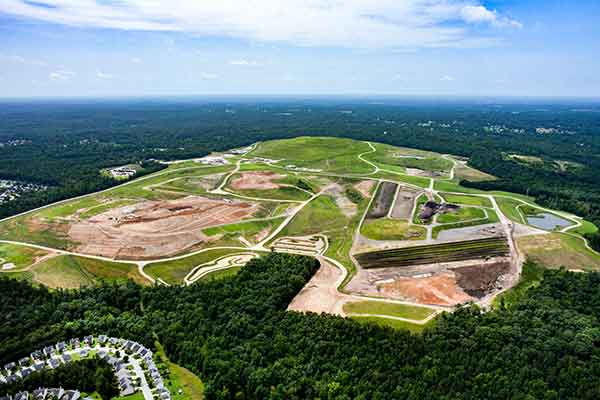


It is not out of the ordinary to see several different landfill designers providing services at a specific site over many years. Each landfill designer brings his/her preferences and designs to the owner, depending on the urgency of the projects and the owner’s willingness to accept new concepts.
Experienced landfill designers review the prior history of design work at the facility and ensure that their new design work is compatible with previously developed cells and final covers. Lack of such due diligence could impede landfilling operations following implementation of the design with implications that may survive for many years to come at a high cost to the owner.
Proper due diligence may reveal issues that the owner may not be aware of. In such cases, the new landfill engineer attempts to explain the observed issues from a previous design to the owner’s attention during one or more meetings or through a narrative report including documentation of the issues and measures to address each issue. The owner may accept or reject the technical matters brought to their attention by the new landfill designer. If accepted, authorize the new design engineer to prepare proper plans and details, and assist in retaining a contractor to fix noted problems. If rejected, the new landfill engineer can feel confident he/she is professionally conducting himself/herself considering the ethical obligations in his/her profession.
If the new landfill engineer had not brought up issues discovered during the due diligence, the owner could blame the new designer claiming that he/she should have known better. Such situations do not get resolved easily and could lead to another change in the design team.
The cost of performing thorough due diligence may not be in the first task order’s budget. However, it will certainly pay off over time with back-to-back task orders from the owner when confidence n the designer’s capabilities build over time.
Changes to the landfill personnel may occur similar to any other organization. Landfill general managers, operation managers, site engineers, or compliance engineers may leave, and the position filled by a new person who has no site familiarity or history. These types of rotations can provide the opportunity for inexperienced landfill designers to influence the site’s long-term plans. Mistakes by inexperienced designers can last decades in some instances, while new and remaining personnel must deal with the consequences.
SCS’s project management protocols require project managers to constantly learn about the site’s history and review documents representing the backbone of the facility development over the long-term life of the site to the present. This type of continual learning of important matters and minute nuances of the site history equips a project manager to address technical and permitting issues based on knowledge of prior work performed at the facility. Implementation of new ideas based on prior knowledge of the site history is considered the backbone of properly managing projects and serving the client in consideration of their business priorities.
Past knowledge comes from documents prepared by prior designers and knowledge of site personnel who have been working at the site for a long time. Competent engineers welcome opportunities to interview and discuss site history, especially with long-term site personnel. The knowledge these people carry with them is not found in any document that the designer, if lucky enough to get his/her hands-on, may obtain by review. The knowledge of the changes to existing systems during original construction and a later date, which may not have been documented, can lead the engineer to concepts that otherwise would not have been envisioned without the long-term employee’s information of the site.
About the Author:
 Ali Khatami, Ph.D., PE, LEP, CGC, is a Project Director and a Vice President of SCS Engineers. He is also our National Expert for Landfill Design, Construction Quality Assurance, and Elevated Temperature Landfills. He has over 40 years of research and professional experience in mechanical, structural, and civil engineering.
Ali Khatami, Ph.D., PE, LEP, CGC, is a Project Director and a Vice President of SCS Engineers. He is also our National Expert for Landfill Design, Construction Quality Assurance, and Elevated Temperature Landfills. He has over 40 years of research and professional experience in mechanical, structural, and civil engineering.